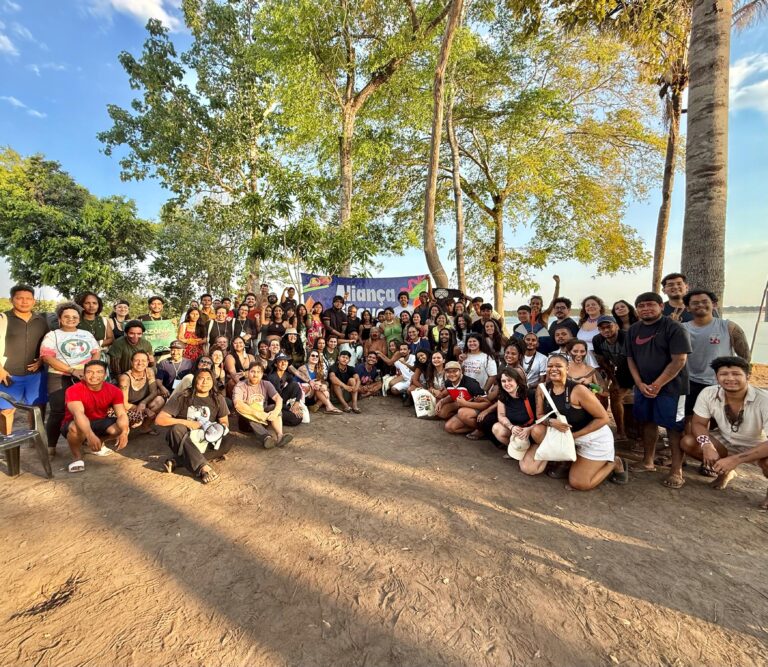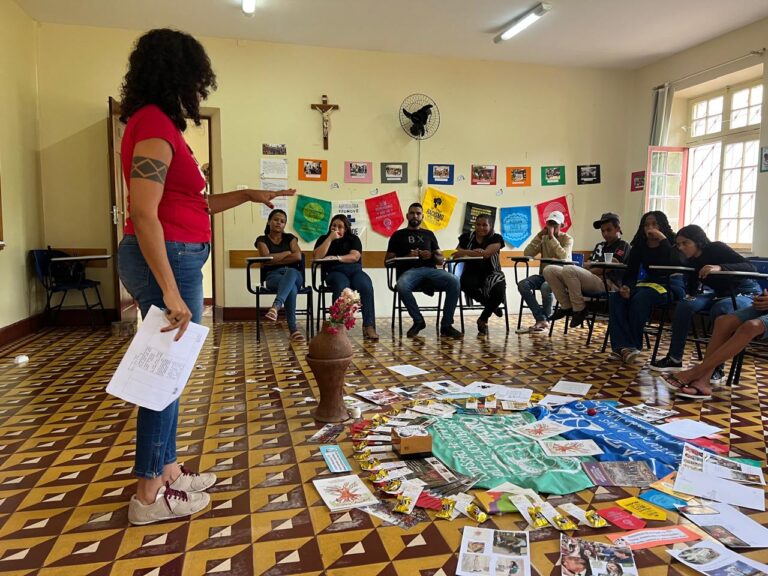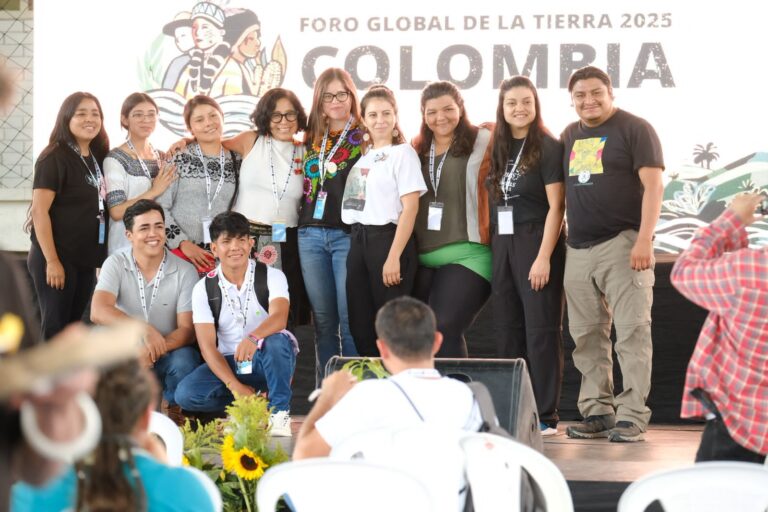March of the Daisies brings together thousands of people in the Federal Capital
Gildo José da Silva- Sítio Sobrado, Jataúba-PE
Tatiane Faustino da Silva- Sítio Umburanas, Afogados da Ingazeira-PE
Adriano Barbosa Ferreira Lima- Rochedo Mill, Catende-PE
All Young Agroecology Multipliers
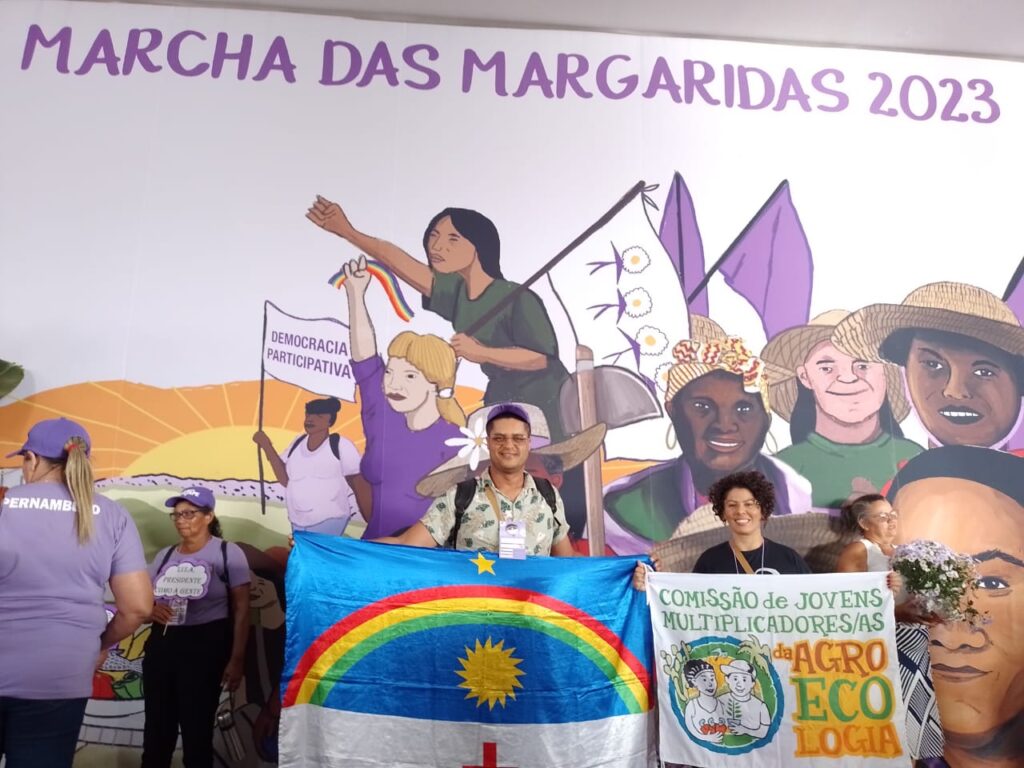
Brasilia is the heart of Brazil, where our futures are decided, the seat of power, and therefore the center of the country’s class demonstrations. And on August 15 and 16, the 7th edition of the March of the Daisies took place, bringing together around 150,000 people in the exhibition park and through the streets of the city. The first day of the event at the city’s exhibition park welcomed the hundreds of delegations arriving from all over the country. There were also thematic workshops, plenary sessions, fairs and many cultural events, such as the bumba-meu-boi from Maranhão, which was danced during the cheganças. On the same day we had the official opening of the march, which brought together various authorities: Margareth Menezes, Anielle Franco, Fátima Bezerra, were some of the many who were present, as well as other ministers and governors. There were thousands of “Margaridas” and “Margaridos” taking part in the two-day march.
On the second and final day, there was a march to the esplanade of ministries, where a structure was set up to receive the authorities and President Lula. During the course of the march, slogans echoed through Brasilia, denouncing the violation of rights, violence, the scrapping of public policies, and many calls for hope, the return of investments and the creation of new actions to combat violence in the countryside, social inequalities, among others. It was a 7-kilometer walk, which was very worthwhile, with many agendas delivered through a letter to the federal government with various demands, such as health, education, security, housing and others. The movement’s agenda includes demands for an end to racism and violence against women, the defense of human rights and the environment.
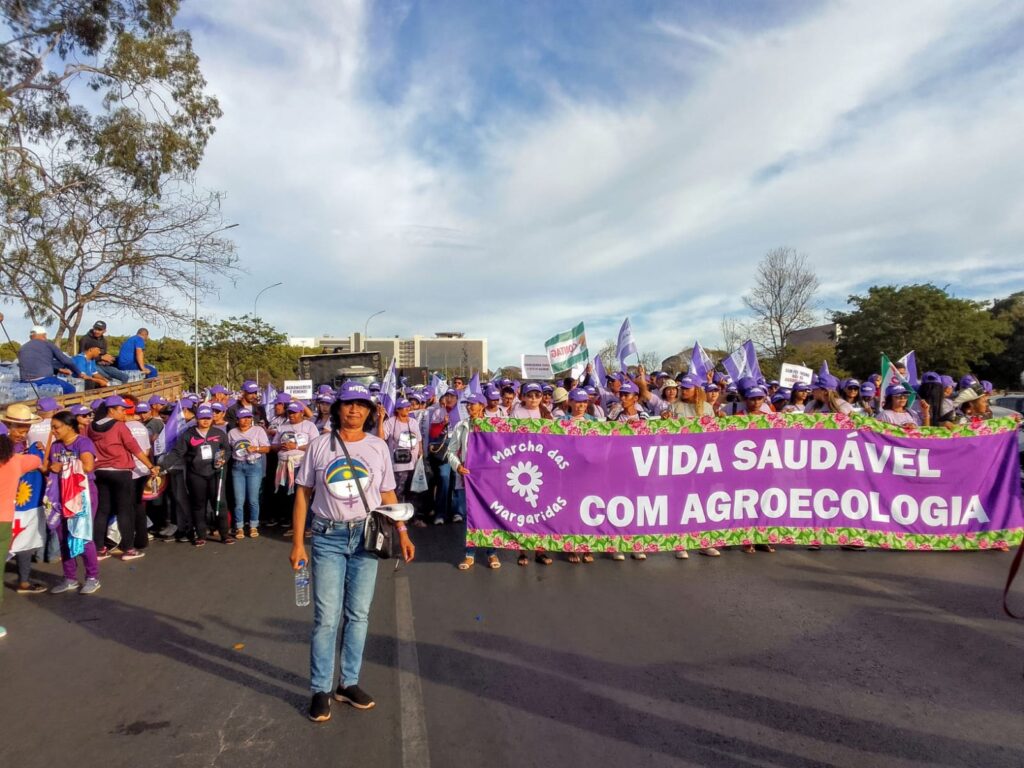
The march is organized by the National Confederation of Agricultural Workers (Contag), with the support of federations, unions and other entities, and is always held in August to remember the month in which Margarida Alves, a northeastern rural worker and union leader, was murdered. Margarida, breaking traditional gender patterns, was president of the Rural Workers’ Union of Alagoa Grande, in Paraíba, for 12 years.
The Commission of Young Agroecology Multipliers was represented by Gildo José, Tatiane Faustino and Ferreira Lima, representing the three regions of Zona da Mata, Agreste and Sertão.
“The march was a unique moment for me, it was my first time taking part, it was a longed-for dream. This march is symbolic of the figure Margarida Alves as the great tribute, she was a peasant woman who fought for land and dignity for the rural people. She was murdered in the struggle. Margarida inspired women and men from the countryside and the city to fight for rights. I felt that together we are stronger and the reconstruction of Brazil is a collective struggle. Living well was the cry echoed in Brasilia by more than 150,000 women and men who, like Margaridas, don’t run away from the struggle,” said Tatiane.
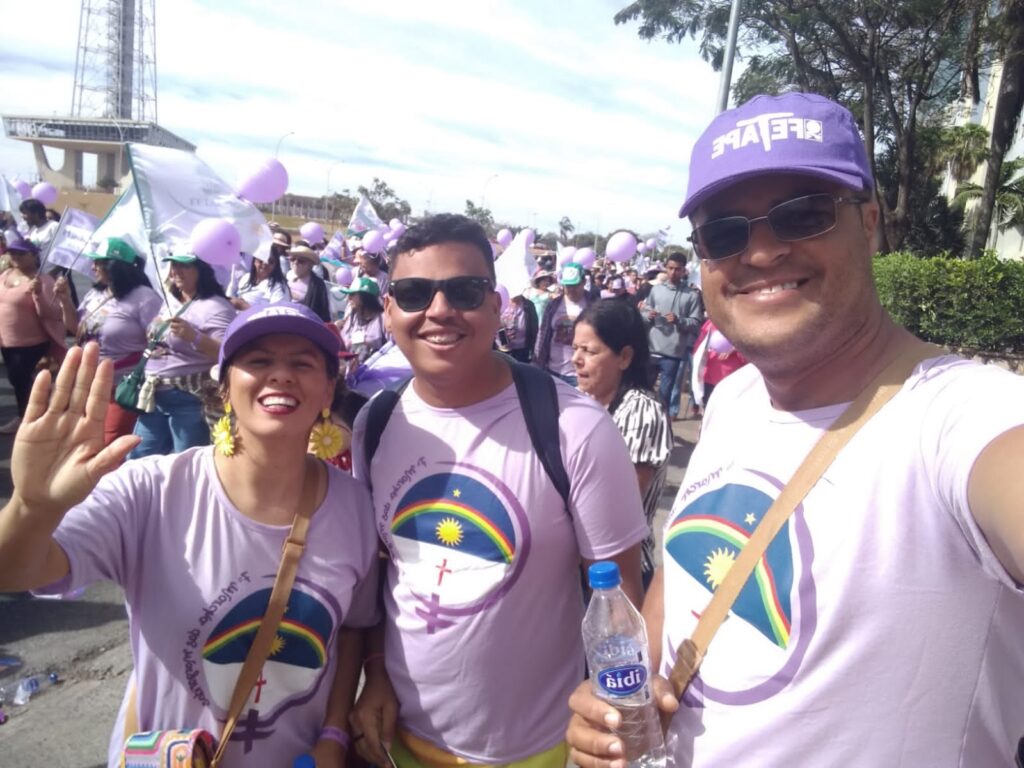
“It was fantastic for me, I had already taken part in the cry of the earth in 2005, the rural youth festival in 2015, and now I’m back in Brasilia for my first march of the Daisies, being in the midst of these Daisies, in these spaces renews the desire to always fight, to always hope for a fairer and more equal world,” describes Gildo.
“As an LGBT person, I missed these struggle agendas, because it’s important to fight for equality, without distinction, we need to deepen this, but it was fantastic to see such a great event, with many faces, in search of the good life,” said Adriano.
Nothing found.


